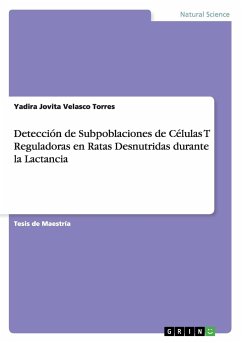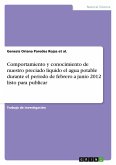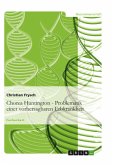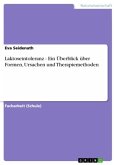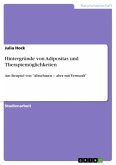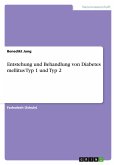Tesis de Maestría del año 2014 en eltema Biología - Patologías, salud, nutrición, Universidad Autónoma Metropolitana, Idioma: Español, Resumen: Malnutrition is a complex process that affects the entire body not just for weight loss but also for alterations that originate from the immune system (IS). The main function of IS is to defend our bodies against aggressions external. It has been shown that different types of cell have the ability to regulate immune response, one of the populations of T-cell help us contribute to this balance and establish control of the immune response are regulatory T cells (Treg). During infection by pathogens these cells reduce the magnitude of effector response, which limits the immune and therefore infection control response. Treg are a particular group of lymphocytes CD4+, which play a fundamental role in the maintenance of tolerance to antigens themselves, avoid the occurrence of autoimmune diseases, control the development of an excessive immune response to pathogens or against different allergens. It has been shown that Treg cells isolated from peripheral blood, suppress the proliferation and cytokine production by native T cells in vitro and memory. There are several studies that support the effect of malnutrition on immune function, even the possible mechanisms by which malnourished bodies show an inefficient immune response to infections has not been determined with clarity. As we consider essential to assess the proportion of Treg cells in thymus and peripheral blood of undernutrition (UN) and well-nourished (WN) rats during lactation, as well as measure the production of intracellular IL-10, to see if it is one of the possible causes of poor immune response associated with malnutrition.
The average obtained from the percentage of Treg cells in thymus and peripheral blood of UN was significantly higher than WN rats. Regarding the production of intracellular IL-10 in rats UN also noted a marked increase compared with WN rats, considering significant value of p 0.05.
Treg cells play a key role in the balance of practically all immune responses, it has been observed that the Treg may interfere with the immune response to infections by viruses, bacteria and parasites, performing a dual role, is, on the one hand can have a protective effect, and on the other hand they may suppress the immune response. This regulation is essential because, it can sometimes be excessive and affect the development of an adequate effector immune response. [...]
Hinweis: Dieser Artikel kann nur an eine deutsche Lieferadresse ausgeliefert werden.
The average obtained from the percentage of Treg cells in thymus and peripheral blood of UN was significantly higher than WN rats. Regarding the production of intracellular IL-10 in rats UN also noted a marked increase compared with WN rats, considering significant value of p 0.05.
Treg cells play a key role in the balance of practically all immune responses, it has been observed that the Treg may interfere with the immune response to infections by viruses, bacteria and parasites, performing a dual role, is, on the one hand can have a protective effect, and on the other hand they may suppress the immune response. This regulation is essential because, it can sometimes be excessive and affect the development of an adequate effector immune response. [...]
Hinweis: Dieser Artikel kann nur an eine deutsche Lieferadresse ausgeliefert werden.

